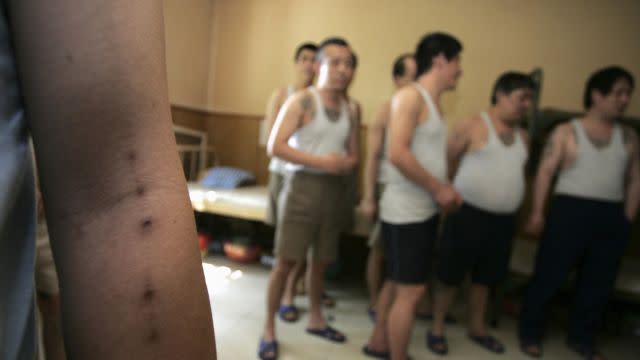China’s top court is imposing tougher penalties for drug offenses

China’s highest court has released new rules on drug convictions and sentencing, enacting harsher penalties to combat an escalating drug problem.
The Supreme People’s Court (SPC) issued a new judicial interpretation (link in Chinese) on drug crimes yesterday (April 7). The document adds 12 new types of illegal drugs—including methcathinone and tramadol—to be subject to criminal penalties. It also lowers the threshold for conviction for the illegal use of 33 precursor chemicals, and increases penalties for those who sell drugs to juveniles.
The new rules also take aim at ketamine, production and sales of which have gone up in recent years, Fang Wenjun, an SPC senior justice, told state newswire Xinhua. It now ranks third among substances involved in China’s drug violations, after methamphetamine and heroin, and smaller amounts of it will now be considered criminal.
Drug-related crime is a growing problem in China. Last year the nation’s courts concluded the trials of nearly 140,000 drug-related cases—a 30% jump from 2014, according to the latest SPC figures (link in Chinese).

Drug crimes already provoke particularly harsh sentences. Last year “heavy penalties”—meaning five years of imprisonment or worse (including the death penalty)—were meted out in 20% of the nation’s drug-related crimes. That compares to 11% of criminal cases overall, according to data (link in Chinese) from the National Narcotics Control Commission.
More government employees are also becoming drug users, Xinhua reported last June (link in Chinese), citing an unidentified official with the nation’s anti-drug department. Under the new rules, which go into effect on April 11, harsher penalties will apply to state officials who commit drug crimes.

Sign up for the Quartz Daily Brief, our free daily newsletter with the world’s most important and interesting news.
More stories from Quartz:

 Yahoo Finance
Yahoo Finance 